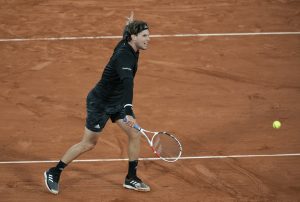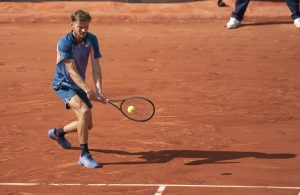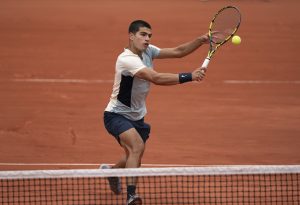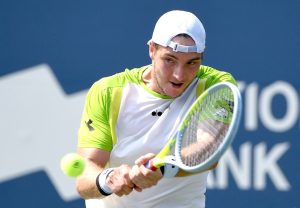With the Olympic Tennis completed at Tokyo 2020 games, we take a look at Five Things We Learned from the Olympic Tennis Tournament.
Five Things We Learned from the Olympic Tennis Tournament
1) Seeding doesn’t guarantee a medal.
Being world #1 or the top seed at the Olympic Games does not guarantee a medal. 2004 saw 10th seed Nicolás Massú claim the gold medal. Top seed at the 2004 games was Roger Federer. The Swiss player was defeated in the second round. The silver medal went to unseeded Mardy Fish, and bronze to sixteenth seed Fernando González. On the ladies side, the top seed Justine Henin did take the gold, with second seed Amélie Mauresmo taking silver. Unseeded Australian Alicia Molik took the bronze.
The next Olympic cycle in Beijing saw the top seed Federer go out in the quarter-final, second seed Rafael Nadal claim gold, 12th seed González claim silver, and third seed Novak Djokovic claim the bronze. The women’s side saw fifth seed Elena Dementieva take gold, sixth seed Dinara Safina claim silver. Vera Zvonareva ninth seed took the bronze.
London 2012
In London 2012 the top seed was again Federer. However, at his home Olympics Andy Murray was third seed and claimed a magnificent gold medal for Team GB, with the Swiss faltering on the big stage to claim the silver. Juan Martín del Potro eighth seed defeated Djokovic the second seed to the bronze medal. Murray had defeated the Serbian in the semi-final in straight sets to set up the gold medal match. On the ladies side Serena Williams the fourth seed took the gold, Maria Sharapova second seed claimed the silver, with Victoria Azarenka who was top seed took the bronze.
Making History in Rio
Djokovic, the top seed in Rio, lost in the first round to del Potro who went on to go one better than in London and claim silver. Bronze went to fourth seed Kei Nishikori who defeated Nadal. Murray became the first tennis player to win back to back Olympic Tennis gold medals.
In Tokyo, with a number of top players missing through injury or not taking part due to the ongoing COVID pandemic, seedings looked to be a factor. Djokovic was again the top seed. But the Serbian was defeated in the semifinal by Alexander Zverev who was fourth seed, with the German going on to win gold. Silver went to Karen Khachanov, the 12th seed, with bronze going to the sixth seed Pablo Carreño Busta. Switzerland did claim a singles gold here with that going to Belinda Bencic the ninth seed. Silver went to unseeded Markéta Vondroušová and bronze to Elina Svitolina.
2) Sport needs a crowd
As Tokyo was suffering from a third wave of COVID-19, crowds were not permitted in the stands. Several players withdrew before the event took place. Nick Kyrgios openly explained that the fact there would be no crowds to watch the players didn’t feel right. The silence from the stands was deafening, it certainly was unlike any other Olympic games in the modern era. No cheering, no support made the tournament very different. No atmosphere is not good for tennis. Players love crowds, be they yelling for them or against them. Crowds can motivate players in very different ways.
3) A medal of any metal is a big deal
Gold is not the be all and end all at the Olympics. This goes for all events, but particularly in Tennis. To play for your country is a big honour, and to claim a valuable medal is a big deal. Spaniard Pablo Carreño Busta defeated the world number one to claim the bronze. Having defeated Daniil Medvedev in the quarter-final before losing to Khachanov in the semi-final, the Spaniard was the underdog in the bronze medal match. After clinching the medal Carreño Busta told the press “It’s a bronze medal, but for me it’s like a gold. I haven’t won the tournament, but it’s the best title of my career,” The Spaniard also sobbed on the court after the triumphant win.
4) More mixed doubles please
Only 16 teams competed in the mixed doubles in Tokyo. More teams should be allowed to enter, or limited to one team per country. This would allow lower ranked doubles pairings to enter making the competition fairer. Away from the tennis, mixed events have been a huge hit in Japan ranging from Mixed Team Triathlon, to mixed swimming relays. Tennis needs to bring in more mixed events, as only four a year at the grand slams is not enough. More mixed doubles on the normal tours where the men and women play events at the same time should not be too hard to organise.
5) Bring back ranking points
Olympic Tennis used to provide ranking points. Removing this, removed incentives for players to need to be selected for this once every four year event. Players like Cameron Norrie who chose to skip the Olympics to concentrate on his world ranking instead. For Norrie this sacrifice has paid off, as the Brit won his first ATP title in Los Cabos. However, if the ranking points were re-introduced then this option would not need to be taken by any player who was high enough ranked to get direct entry to their countries team.
Main photo:
Embed from Getty Images






